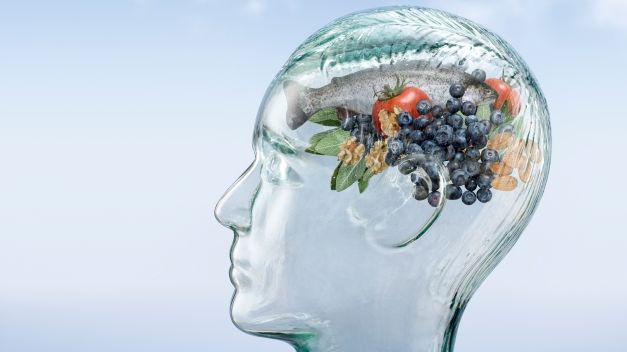
Press release -
Brain food – putting science on the menu
Diners will discover how the food on their plate can impact their brain function at a special dining experience during the British Science Festival in Newcastle.
Blending the academic with the gastronomic, the dinner features a menu created from foods that research has found to have an effect on how the brain functions.Northumbria University biological psychologist, Professor David Kennedy, has teamed up with Newcastle restaurateur David Kennedy to introduce diners to the science behind their food and drink at an event called DK2: A Cerebral Celebration of Food and Science.
DK2 takes place at The Bridge restaurant in the Vermont Hotel, Newcastle, on Sunday 8 September.
Between each of the carefully chosen courses Professor Kennedy, Director of Northumbria’s Brain, Performance and Nutrition Research Centre (BPNRC), and colleague Emma Wightman, lecturer in biological psychology, will explain to diners how the food they are eating affects the brain, drawing on the research undertaken at Northumbria and elsewhere. Chef Kennedy will describe how the courses have been prepared.
On the menu is heritage carrot soup with pine nuts and walnuts, escabeche of local mackerel, Northumbrian lamb with various kales, cauliflower and garlic, beetroot and chocolate cake, with foraged blackberries and crème fraiche. Wine, coffee and tea will also be served.
Professor Kennedy will describe the benefits of each of the ingredients:
• Carrots – carotenoids in carrots are converted into Vitamin A, required for the brain’s physiological processes;
• Wine – resveratrol polyphenol, found in grapes and red wine, increases blood flow in the brain during task performance.
“The best way to get the things the brain needs to function well is by eating a balanced diet but, where people find this difficult, vitamin supplements can help to fill in the gaps. Our research work at Northumbria University looks at supplements and their effect on brain function.
“The message we want diners to take away from this session is the importance of eating more of the healthy foods in their daily diet. This event will also give them tips on how to cook them too!”
During the event Emma Wightman, lecturer in biological psychology at Northumbria, will demonstrate the brain imaging technique using near-infrared spectroscopy – a non-invasive assessment of brain function using infrared light to detect changes in blood haemoglobin concentrations associated with neural activity.
She will also describe her own research showing that red wine – polyphenol resveratrol – increased cerebral blood flow in study participants.
The British Science Festival is an annual celebration of science, engineering and technology which visits a different UK city each year. The Festival is organised by the British Science Association and this year is being hosted by Newcastle University with Northumbria University and Newcastle City Council as associate partners and AkzoNobel, Northumbrian Water, GE Oil & Gas and Saudi Aramco as major sponsors. The Festival will take place in different venues in and around the city from Saturday 7 September through to Thursday 12 September.
DK2: A Cerebral Celebration of Food and Science takes place on Sunday 8 September at 7.30pm in The Bridge Brasserie, The Vermont Hotel, Castle Garth, Newcastle, NE1 1RQ. For more information about the session, visit www.britishsciencefestival.org.
Topics
Categories
Northumbria is a research-rich, business-focussed, professional university with a global reputation for academic excellence. To find out more about our courses go towww.northumbria.ac.uk
If you have a media enquiry please contact our Media and Communications team at media.communications@northumbria.ac.uk or call 0191 227 4571.






